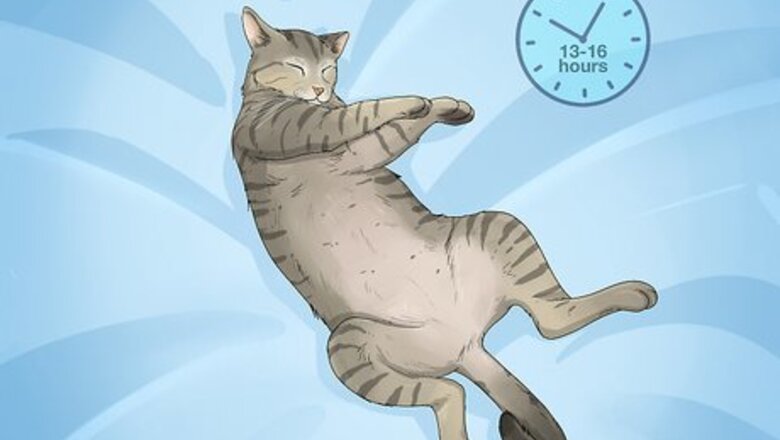
views
Identifying Symptoms
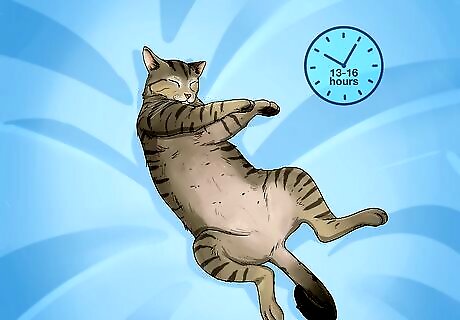
Monitor your cat’s sleeping habits. Your typical adult cat will sleep around 13 to 16 hours out of a 24-hour day (about 50 to 70 percent of the day). While it is common for a cat to wake up during the night for a couple of hours to play or eat, staying up all night is not normal. If your cat is staying up for an extended amount of time during the night, then it may not be getting enough sleep. Since it is difficult to monitor your cat’s sleeping habits during the day, try to monitor its sleeping habits during the night instead. Senior cats generally sleep more than your average adult cat, around 80 percent of the day.
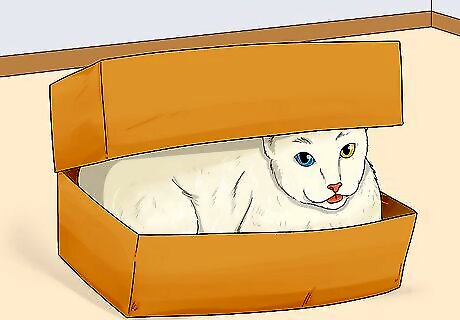
Identify restlessness in your cat. Restlessness, irritability and confusion are common signs that your cat may not be getting enough sleep. Additionally, if you notice any mood changes in your cat, then this may be an indication that your cat is not getting enough sleep. For example, if your playful, energetic cat suddenly turns into a distant, lethargic cat, then it may be suffering from a lack of sleep. If your cat seems to be hiding more often, this could be a sign that they are looking for more opportunities to sleep during the day.
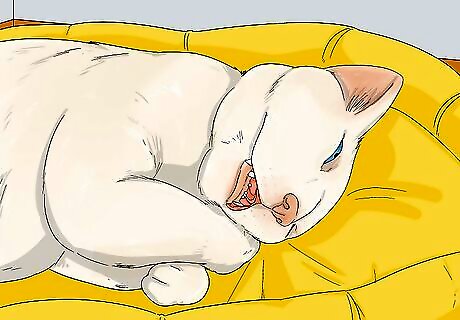
Observe your cat’s snoring. While some cats are known to snore while they sleep, excessive or loud snoring may disrupt your cat’s sleep and cause it to lose out on its sleep. Additionally, overweight cats and cats with shortened muzzles (Persian cats) are more susceptible to excessive or loud snoring than other types of cats. If this is your cat, make sure its snoring is not preventing it from getting its sleep. Be aware that excessive or loud snoring is also a symptom of sleep apnea.
Ruling Out Illnesses

Notice excessive meowing during the night. Excessive meowing (or crying) coupled with restlessness during the night may be a sign of an underlying illness such as heart disease or hypertension. It may also be a sign that your cat is in pain due to an infection, arthritis, or another type of disease or illness.
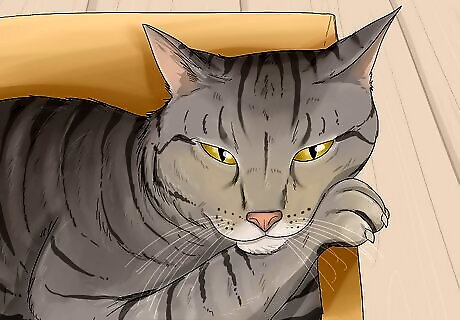
Watch out for excessive lethargy during the day. If you notice a significant decrease in your cat’s energy levels during the day, this could be a sign that your cat is suffering from sleep apnea or another type of sleep disorder. Additionally, if your cat suddenly collapses into a deep sleep and then arouses as if nothing happened, your cat may have narcolepsy. Narcoleptic episodes can range from a couple seconds to 30 minutes.
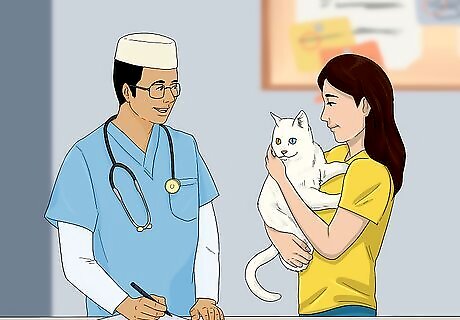
Consult your vet. If you notice your cat sleeping much less than before, schedule a vet appointment immediately. Likewise, if you notice signs of pain or illness including hiding, loss of interest in activities, over-grooming one spot, excessive meowing or unusual vocalizations, uncharacteristic aggression, or going outside the litter box, your cat needs to see the vet. Your vet will run blood tests to rule out any underlying problems such as a disease or illness. Your vet can also advise you on ways to help your cat sleep better.
Helping Your Cat Sleep

Provide a safe sleeping space. Cats typically like small spaces that only they can fit in. They like them even more when those spaces are off the ground. If your cat has a place where they feel protected, they will be able to sleep better. Try getting a cat tower or kitty palace for your cat. You could also add towels or blankets to a cat shelf or ledge, or even a window sill to create a comfortable place where they can sleep.
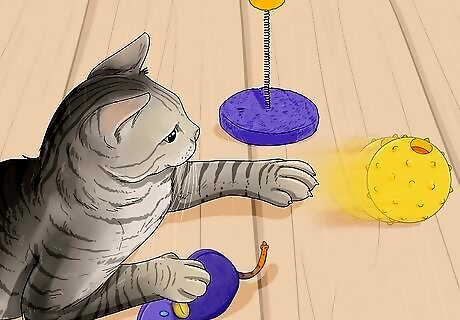
Play with your cat in the evening. Make sure to play and interact with your cat for at least 30 minutes a day. This can be done in two or three, short 10 to 15-minute play sessions throughout the day. Playing with your cat will exhaust it and help it sleep better at night. Use interactive toys such as toys that imitate the movements of birds and mice. Ping-pong balls, cardboard boxes, and crumpled pieces of paper are also great ways to keep your cat entertained during the day.

Feed your cat a big meal before bedtime. A big meal before bedtime will cause your cat to become drowsy and want to sleep. If you decide to do this, just make sure to adjust the size of its other meals so it does not gain weight. For example, feed your cat a smaller amount of food before you leave for work. Once you are ready to go to bed, feed your cat the rest of its food.
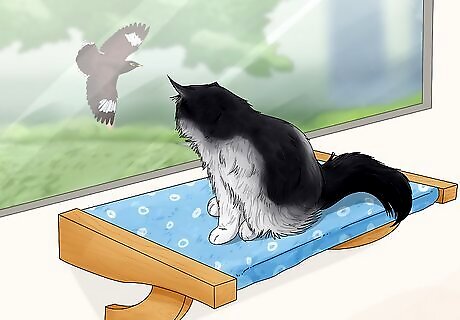
Enrich your cat’s environment. Keep your cat busy during the day when you are at work with cat perches and food puzzles. You can even install bird feeders outside to attract birds and other animals to your backyard. This way, your cat can watch the excitement outside while you are away. Make sure to provide your cat with a variety of toys, and switch them out often as well. Think about whether other pets in your house could be keeping your cat up at night. Other cats, dogs, or nocturnal pets like hedgehogs and guinea pigs could keep your cat up with noise or through interacting with them while they try to sleep. Cat videos are a new form of entertainment for cats today. Set up a timer on your TV to play these videos throughout the day to keep your cat busy.



















Comments
0 comment